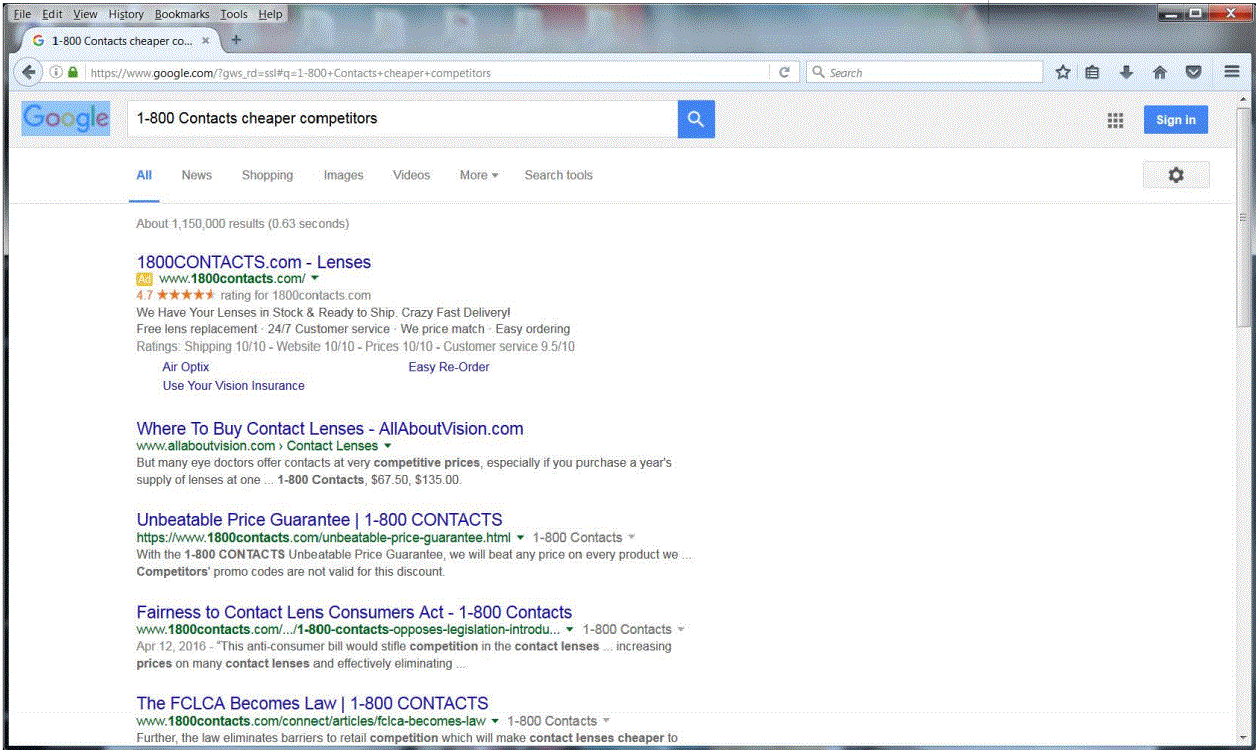
Rehearing Briefs in Enigma Software v. Malwarebytes
In September, in Enigma v. Malwarebytes, the Ninth Circuit issued a troubling Section 230(c)(2)(B) ruling that allowed plaintiffs’ allegations of anti-competitive animus to override the safe harbor for anti-threat software vendors. It was a 2-1 ruling on a key topic,…

Section 230 Helps Search Engine Defeat “Right to Be Forgotten” Lawsuit–Mosha v. Yandex
Looking holistically at the broad arc of Internet Law history, I could make a good case that the EU’s Right to Be Forgotten marked the beginning of the end of the modern Internet. It was the first time that a…

Terrible Ninth Circuit 230(c)(2) Ruling Will Make the Internet More Dangerous–Enigma v. Malwarebytes
The Ninth Circuit has issued a Section 230(c)(2) opinion that creates significant problems for anti-spyware/spam/virus vendors (I’ll call them “anti-threat vendors”). The ruling will paralyze their decision-making, expose them to greater legal threats, and reduce their ability to protect consumers…

Comments on Rep. Gosar’s “Stop the Censorship Act,” Another “Conservative” Attack on Section 230
At this point, many “conservatives” favor government regulation of the editorial practices of Internet companies. As a result, proposals coming from DC “conservatives” that reference “censorship” in their titles almost certainly are designed to embrace, not prevent, censorship. For example,…

Filtering Software Defeats Another Lawsuit–PC Drivers v. Malwarebytes
I blogged about this case in September. PC Drivers makes software that claims to help speed up users’ computers. Malwarebytes blocked it as a “potentially unwanted program,” or PUP. Litigation ensued. In the prior ruling, Malwarebytes won big, but then…
Best and Worst Internet Laws [Repost from Concurring Opinions’ Archive]
[In 2007, I guest-blogged at the group law professor blog Concurring Opinions. With the demise of that blog, I am now archiving my guest posts on my own blog. This post first appeared on February 15, 2007.] __ [Preface: I’ve already…

Section 230 Helps Malware Vendor Avoid Liability for Blocking Decision–PC Drivers v. Malwarebytes
We rarely see cases like this any more, so I think it’s worth blogging this April ruling even though it just showed up in Westlaw. PC Drivers makes software designed to speed up users’ computers, an industry niche that’s known…
Section 230(c)(2) Protects Anti-Malware Vendor–Enigma v. Malwarebytes
[It’s impossible to blog about Section 230 without reminding you that it remains highly imperiled.] In 2009, the 9th Circuit ruled that Section 230(c)(2) protected Kaspersky from liability for blocking Zango’s software as adware. Since that ruling, we have seen relatively few…
German Court Says Ad-Blocking is Liberation, Not Extortion (Guest Blog Post)
[By guest blogger Russell A. Miller, the JB Stombock Professor of Law at Washington & Lee University, where his teaching and research focuses on German law and legal culture. He is the co-founder and Co-Editor-in-Chief of the German Law Journal. He has…

FTC Sues 1-800 Contacts For Restricting Competitive Keyword Advertising
For over a decade, I’ve blogged about 1-800 Contacts’ campaign to suppress competitive keyword advertising, including its legislative games (e.g., those times when 1-800 Contacts asked the Utah legislature to ban competitive keyword advertising) and at least 15 lawsuits against…
